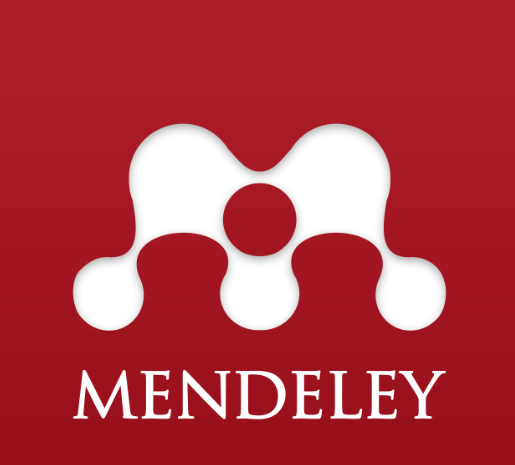The Role of Internal Audit Quality to the Sustainability and Success of Microfinance Program
DOI:
https://doi.org/10.22219/mb.v12i01.15642Keywords:
Internal, Audit, sustainability, microfinance, loan programsAbstract
Microfinance institutions are the main source of finance for the poor and the women in many country, therefore the sustainability of these companies is a concern, but that cannot be achieved without proper internal control mechanism to detect any attempt frauds that could harm the operations of microfinance institutions. The research will used literature review method by digging into previous researches to see the main courses of the failure of many microfinance institutions. The research found out that most of the microfinance institution failed due to inadequate control in place to detect malfunctions or fraud at the earlier stages that can safeguard the operations of microfinance institutions.
Downloads
References
BADARA, Muâazu Saidu and Siti Zabedah SAIDIN. 2013. “The Relationship between Audit Experience and Internal Audit Effectiveness in the Public Sector Organizations.” International Journal of Academic Research in Accounting, Finance and Management Sciences 3(3):329–39.
Blumberg, Boris, Donald R. Cooper, and Pamela S. Schindler. 2011. Business Research Methods. London: McGraw-Hill Higher Education.
Coram, Paul, Colin Ferguson, and Robyn Moroney. 2008. “Internal Audit, Alternative Internal Audit Structures and the Level of Misappropriation of Assets Fraud.” Accounting and Finance 48(4):543–59.
Dittenhofer, Mort. 2001. “Internal Auditing Effectiveness: An Expansion of Present Methods.” Managerial Auditing Journal 16(8):443–50.
Getie Mihret, Dessalegn, Kieran James, and Joseph M. Mula. 2010. “Antecedents and Organisational Performance Implications of Internal Audit Effectiveness: Some Propositions and Research Agenda.” Pacific Accounting Review 22(3):224–52.
Hung, Jung-Hua and Hui-Lin Han. 1998. “An Empirical Study on Effectiveness of Internal Auditing for Listed Firms in Taiwan.” Retrieved November 4:2008.
Ibironke, Olukayode Ezekiel and Ndubuisi Ikechi Elewor. 2020. “The Role of Internal Audit and Control on Organizational Objective Achievement.” VII(V):257–64.
Kothari, C. R. 2002. Research Methodology: Method & Techniques.
Muhammed, Amina Ahmed. 2018. “The Role of Internal Auditors in Private and Public Organizations of Jimma Zone Selected Weredas, Ethiopia.” International Journal of Research in Business and Social Science (2147-4478) 6(6):152–68.
Musah, Alhassan, Erasmus Dodzi Gapketor, and Fred Kwesi Anokye. 2019. “Determinants of Internal Audit Effectiveness in State-Owned Enterprises ( SOEs ) in Ghana.” 8(January):52–68.
Mustika, Adhista Cahya. 2015. “Factors Affecting the Internal Audit Effectiveness.” Factors Affecting the Internal Audit Effectiveness 12(2):89–109.
Narkchai, Sutana and Faudziah Hanim Binti Fadzil. 2017. “The Communication Skill on the Performance of Internal Auditors in Thailand Public Limited Company.” International Review of Management and Marketing 7(4):1–5.
Obeng, K. 2016. “Effectiveness of Internal Audit in Micro Financial Institutions: Evidence from Selected Financial Institution in Ghana.” Research Journal of Finance and Accounting 7(12):63–70.
OKARO, S. C., G. O. OKAFOR, I. O. NWANNA, and I. M. IGBINOVIA. 2017. “Empowering the Internal Audit Function for Effective Role in Risk Management. A Study of Micro Finance Banks in Anambra State, South East, Nigeria.” International Journal of Academic Research in Accounting, Finance and Management Sciences 7(3):14–23.
Pavković, Anita, Danijel Mlinarić, and Tanja Dolinar. 2014. “Systemic Risk Governance in Croatian Financial System.” Banks and Bank Systems 9(1):111–19.
Prawitt, Douglas F., Jason L. Smith, and David A. Wood. 2009. “Internal Audit Quality and Earnings Management.” Accounting Review 84(4):1255–80.
Ramachandran Asst Professor, DrJayalakshmy, DrRamaiyer Subramanian, and Ireneo John Kisoka. 2012. “Effectiveness of Internal Audit in Tanzanian Commercial Banks.” British Journal of Arts and Social Sciences 8(I):2046–9578.
Tazilah, Mohd Danial Afiq Bin Khamar and Norhusnaida Binti Che Hussain. 2015. “The Importance of Internal Control in SMEs : Fraud Prevention & Detection.” International Conference on Business, Accounting, Finance, and Economics (February).
The SEEP Network. 2011. “Pocket Guide to the Internal Audit Activity Guide for Boards of Directors of Microfinance Institutions.” (November).
World Economic Forum (WEF), Sirine Mnif, Chiraz Feki, Ines Abdelkafi, Vagan Terziyan, Svitlana Gryshko, Mariia Golovianko, Courtney Krousie, Rostislav Kapeliushnikov, Munich Personal, Repec Archive, L. M. Henk, Hildegunn Kyvik, Economic Policy Analysis, International Affairs, Editorial Board, International Affairs, Werner Smolny, R. G. Pierse, Adelaida Reyes, Joonmo Cho, Jinha Kim, Angel Garcia, Jordi Jaumandreu, Cesar Rodriguez, B. Y. P. Fung, K. T. O'Brien, Shiyong Wang, Jiafu Wan, Di Li, Chunhua Zhang, John Van Reenen, Nitin Sachdeva, Rajat Kumar Obheroi, Abhishek Srivastava, S. K. Nehal, Jose Pedro, Mora Ortiz, Anton Friedl, and Marco Vivarelli. 2018. Title.” Russian Journal of Economics 48(2):123–54.
Downloads
Published
Issue
Section
License
Copyright (c) 2022 Manajemen Bisnis

This work is licensed under a Creative Commons Attribution 4.0 International License.
Authors who publish with this journal agree to the following terms:
- Authors retain copyright and grant the journal right of first publication with the work simultaneously licensed under a Creative Commons Attribution-ShareAlike 4.0 International License that allows others to share the work with an acknowledgment of the work's authorship and initial publication in this journal.
- Authors are able to enter into separate, additional contractual arrangements for the non-exclusive distribution of the journal's published version of the work (e.g., post it to an institutional repository or publish it in a book), with an acknowledgment of its initial publication in this journal.
- Authors are permitted and encouraged to post their work online (e.g., in institutional repositories or on their website) prior to and during the submission process, as it can lead to productive exchanges, as well as earlier and greater citation of published work (See The Effect of Open Access).

This work is licensed under a Creative Commons Attribution-ShareAlike 4.0 International License.




71.png)





